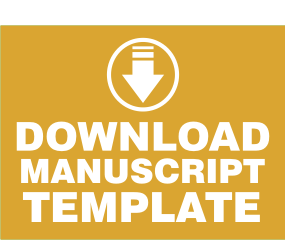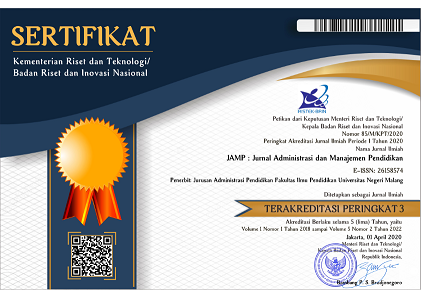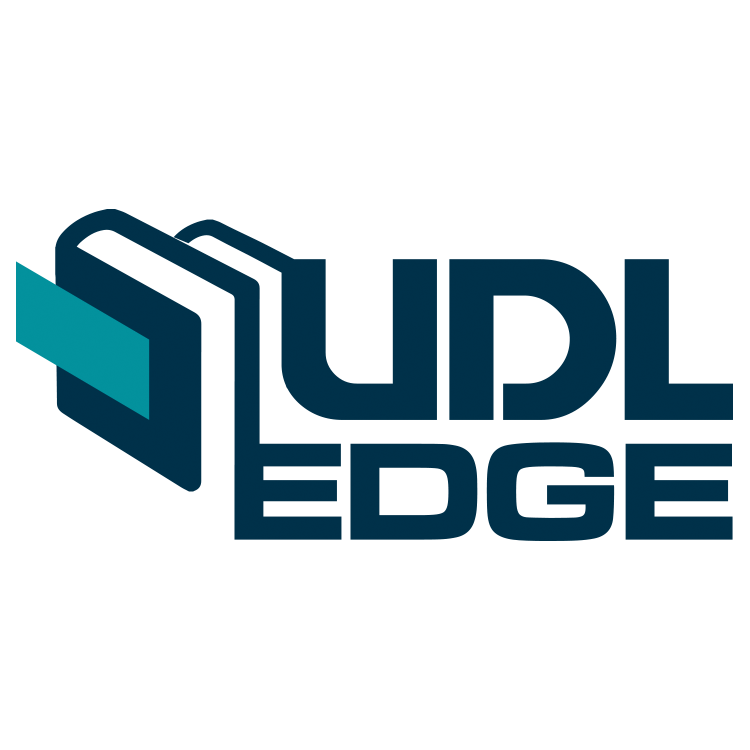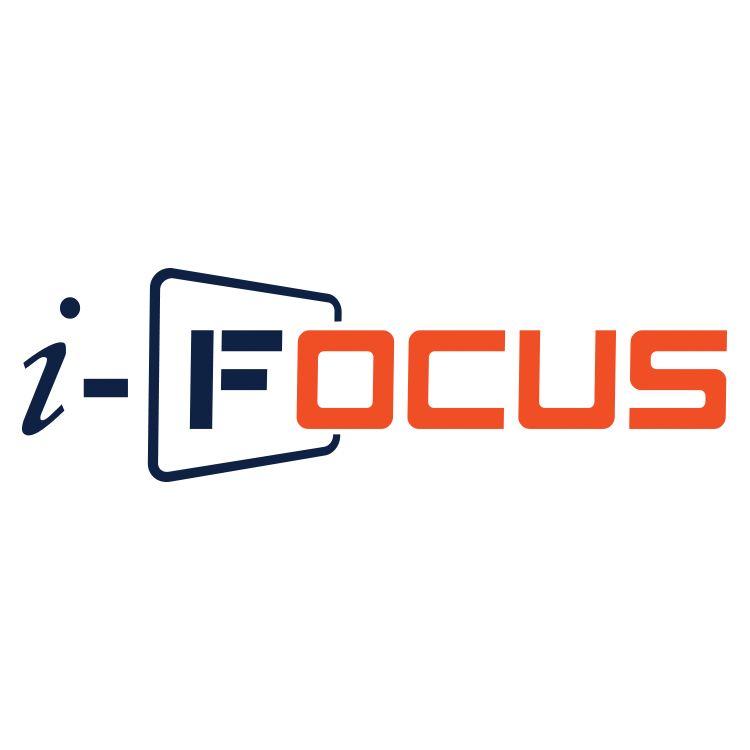Mendiagnosis Masalah Belajar Siswa dalam Konteks Menajemen Kelas: Bagaimana Pengajaran Guru Mereduksinya?
Abstract
Abstract: Student learning problems pose a particular challenge to teachers, as unlike most conditions in the mainstream, the diagnostic process required to some extent depends on teacher interpretation and the teacher-student relationship. The purpose of this study is to diagnose student learning problems in the context of classroom management for the effectiveness of teacher teaching. A qualitative methodology in the form of a grounded theory approach is applied because the purpose of this research is to produce contemporary theories to better understand student learning problems. The participants and the researchers conducted interviews and focus group discussions. The size of the informants of this study is based on theoretical saturation. Transcriptions of interviews, observations, and focus group discussions were subjected to coding (open coding, axial coding, and selective coding) to unlock data-based concepts. We then integrated these concepts into classroom management theory. The results found that student learning problems were categorized into four categories: attitudes, relationships with students and parents, material content, and 21st century skills. This new understanding provides scholars and practitioners with insight into studying student learning problems.
Keywords: student learning problems, classroom management, teaching effectiveness, qualitative studies, grounded theory
Abstrak: Masalah belajar siswa menimbulkan tantangan khusus bagi guru, karena tidak seperti kebanyakan kondisi pada arus utama, proses diagnostik diperlukan sampai batas tertentu bergantung pada interpretasi guru dan relasi guru-siswa. Tujuan penelitian ini adalah mendiagnosis masalah belajar siswa dalam konteks menajemen kelas untuk keefektifan pengajaran guru. Metodologi kualitatif berupa pendekatan grounded theory diterapkan karena tujuan dari penelitian ini adalah untuk menghasilkan teori kontemporer untuk lebih memahami masalah belajar siswa. Para partisipan bersama peneliti menyelenggarakan wawancara dan focus group discussions. Ukuran informan studi ini berdasarkan kejenuhan teoritis. Transkripsi wawancara, observasi, dan focus group discussions menjadi sasaran pengkodean (open coding, axial coding, dan selective coding) untuk membuka konsep yang didasarkan pada data. Konsep tersebut kemudian kami diintegrasikan ke dalam teori manajemen kelas. Hasilnya menemukan bahwa masalah belajar siswa dikategorikan dalam empat kategori: sikap, relasi dengan siswa dan orang tua, konten materi, dan keterampilan abad 21. Pemahaman baru ini memberikan wawasan kepada para sarjana dan praktisi dalam mengkaji permasalahan belajar siswa.
Kata kunci: masalah belajar siswa, manajemen kelas, keefektifan pengajaran, studi kualitatif, grounded theory
Full Text:
PDFReferences
Agustin, D. R., Zain, S. S., & Diswantika, N. (2022). Upaya mengatasi perilaku membolos melalui pendekatan konseling realitas pada peserta didik Kelas XI SMA Negeri 5 Bandar Lampung. Jurnal Ilmiah Mahasiswa Ilmu Pendidikan Bimbingan Konseling, 4(1), 1-8.
Agustina, K., Sahidu, H., & Gunada, I. W. (2020). Pengaruh model pembelajaran inkuiri terbimbing berbantuan media PheT terhadap kemampuan pemecahan masalah dan berpikir kritis Fisika peserta didik SMA. Jurnal Pendidikan Fisika dan Teknologi, 6(1), 17-24.
Agustina, N. E., Sumarsono, R. B., & Gunawan, I. (2018). Implementation of school and community relationship techniques (A case study in SDN Karangbesuki 2 Malang, Indonesia). Proceedings of the 1st International Conference on Early Childhood and Primary Education (ECPE 2018). Atlantis Press.
Amanah, M., Maisyaroh, & Gunawan, I. (2022). Manajemen kurikulum kelas industri yamaha dan daihatsu. Jurnal Pembelajaran, Bimbingan, dan Pengelolaan Pendidikan, 2(3), 278-287.
Andriningrum, J., Faruai, R. A., Gunawan, I., & Suriono, H. (2022). Prototype of interactive multimedia learning about natural resources and energy to elementary school students. Proceedings of the 2022 2nd International Conference on Information Technology and Education (ICIT&E). IEEE.
Anjani, N. L., Benty, D. D. N., & Gunawan, I. (2022). Pendidikan Karakter Aspek Nilai Kejujuran pada Satuan Pendidikan Menengah. Jurnal Pembelajaran, Bimbingan, dan Pengelolaan Pendidikan, 2(4), 354-367.
Annisa, R., Astuti, B., & Mindyarto, B. N. (2019). Tes diagnostik four tier untuk identifikasi pemahaman dan miskonsepsi siswa pada materi gerak melingkar beraturan. JPFK: Jurnal Pendidikan Fisika dan Keilmuan, 5(1), 25-32.
Argadinata, H., & Gunawan, I. (2019). The leadership of Pancasila in education: Foundation for strengthening student characters in the industrial revolution era 4.0. Proceedings of the 4th International Conference on Education and Management (COEMA 2019). Atlantis Press.
Arisanti, D. (2021). Penerapan model problem based learning (PBL) untuk meningkatkan kemampuan dalam pemecahan masalah Fisika. Journal of Education, Psychology and Counseling, 3, 49-56.
Arkorful, V., & Abaidoo, N. (2015). The role of e-learning, advantages and disadvantages of its adoption in higher education. International Journal of Instructional Technology and Distance Learning, 12(1), 29-42.
Astutik, S., & Maknuniyah, L. (2022). The effect of cosheet strategy-based on collaborative creativity learning on energy literation ability and physics learning outcome. JPPS (Jurnal Penelitian Pendidikan Sains), 11(2), 180-192.
Bafadal, I., Gunawan, I., Nurabadi, A., & Juharyanto. (2020). Leadership in excellent school: A qualitative study. Proceedings of the 1st International Conference on Information Technology and Education (ICITE 2020). Atlantis Press.
Bafadal, I., Juharyanto, Nurabadi, A., & Gunawan, I. (2018). Principal leadership and its relationship with student learning achievements: A regression analysis. Proceedings of the 3rd International Conference on Educational Management and Administration (CoEMA 2018). Atlantis Press.
Bafadal, I., Nurabadi, A., & Gunawan, I. (2021). Pembinaan Kepala Sekolah Pemula sebagai Pemimpin Pembelajaran: Teori, Pengukuran, dan Pengembangannya. Malang: Universitas Negeri Malang, UM Press.
Barthelemy, R. S., & Knaub, A. V. (2020). Gendered motivations and aspirations of university physics students in Finland. Physical Review Physics Education Research, 16(1), 1-14.
Benty, D. D. N., & Gunawan, I. (2015). Manajemen Hubungan Sekolah dan Masyarakat. Malang: Universitas Negeri Malang, UM Press.
Boddy, C. R. (2016). Sample size for qualitative research. Qualitative Market Research, 19(4), 426-432.
Brown, P. C., Roediger, H. L., & McDaniel, M. A. (2014). Make it Stick: The Science of Successful Learning. Cambridge: Belknap Press.
Budiarti, E. M., Gunawan, I., & Pambudi, B. A. (2020). The effect of spiritual leadership and academic supervision on teacher performance. Proceedings of the 6th International Conference on Education and Technology (ICET 2020). Atlantis Press.
Charli, L., Ariani, T., & Asmara, L. (2019). Hubungan minat belajar terhadap prestasi belajar fisika. SPEJ: Science and Physics Education Journal, 2(2), 52-60.
Charmaz, K., (2020). Grounded theory: Main characteristics. Dalam Jarvinen, M., & Mik-Meyer, N., (Eds.), Qualitative Analysis: Eight Approaches for the Social Sciences. London: Sage.
Corbin, J., & Strauss, A. (1990). Grounded theory research: Procedures, canons, and evaluative criteria. Qualitative Sociology, 13(1), 3-21.
Darise, M. I., Umar, M. K., Adjul, T., Yunginger, R., Uloli, R., & Ntobuo, N. E. (2022). Kelayakan LKPD dalam pembelajaran daring dan hasil belajar Fisika di SMA Gorontalo Utara. Educatio, 17(1), 54-62.
Dewantara, K. H. 2015. Pendidikan. Yogyakarta: Majelis Luhur Taman Siswa.
Diana, H. A., & Saputri, D. V. (2021). Model project based learning terintegrasi steam terhadap kecerdasan emosional dan kemampuan berpikir kritis. Jurnal Numeracy, 8(2), 113-127.
Edmunds, H. (2000). The Focus Group Research Handbook. New York: McGraw-Hill.
Eveline, E., Jumadi, Wilujeng, I., & Kuswanto, H. (2019). The effect of scaffolding approach assisted by phet simulation on students’ conceptual understanding and students’ learning independence in Physics. Journal of Physics: Conference Series, 1233(1), 1-11.
Faizah, A. N., Gunawan, I., Bafadal, I., & Timan, A. (2020). The relationship between learning leadership and teacher performance: A correlation analysis. Proceedings of the 1 st International Conference on Information Technology and Education (ICITE 2020). Atlantis Press.
Fitriyani, R. V., Supeno, S., & Maryani, M. (2019). Pengaruh LKS kolaboratif pada model pembelajaran berbasis masalah terhadap keterampilan pemecahan masalah Fisika siswa SMA. Berkala Ilmiah Pendidikan Fisika, 7(2), 71-81.
Fook, C. Y., & Sidhu, G. K. (2015). Investigating learning challenges faced by students in higher education. Procedia - Social and Behavioral Sciences, 186, 604-612.
Glaser, B., & Strauss, A. (1967). The Discovery of Grounded Theory. Strategies for Qualitative Research. London: Aldine Transaction.
Gunawan, I. (2013). Metode penelitian kualitatif: Teori dan praktik. Jakarta: PT Bumi Aksara.
Gunawan, I. (2019). Manajemen kelas: Teori dan aplikasinya. Depok: Rajawali Pers.
Gunawan, I., & Benty, D. D. N. (2007). Musyawarah guru mata pelajaran dan kemampuan mengelola kelas untuk meningkatkan motivasi belajar siswa. Manajemen Pendidikan, 20(1), 21-31.
Gunawan, I., Zulkarnain, W., Apriani, R., Baharudin, A., Prayoga, A. G., Kurniawati, R. P., & Wardani, A. D. (2022). Evaluation of online teaching with the SIPEJAR Platform during the COVID-19 pandemic. 2022 2nd International Conference on Information Technology and Education (ICIT&E). IEEE.
Hardika, Aisyah, E. N., & Gunawan, I. (2018). Transformasi Belajar Generasi Milenial. Malang: Universitas Negeri Malang, UM Press.
Harmini, S., Kartini, H., & Gunawan, I. (2017). Filsafat dan Teori Pendidikan. Malang: Penerbit Universitas Negeri Malang, Penerbit UM Press.
Hidayah, N., Hardika, Hotifah, Y., Susilawati, S. Y., & Gunawan, I. (2017). Psikologi Pendidikan. Malang: Penerbit Universitas Negeri Malang, Penerbit UM Press.
Hudha, M. N., Batlolona, J. R., & Wartono. (2019). Science literation ability and physics concept understanding in the topic of work and energy with inquiry-STEM. AIP Conference Proceedings, 2202, 1-11.
Ikbal, M. S., Latuconsina, N. K., & Syamsinar. (2021). Analysis of the impact of labeling on students’ interest in learning physics. Journal of Physics: Conference Series, 1760(1), 1-11.
Islam, N., Beer, M., & Slack, F. (2015). E-learning challenges faced by academics in higher education. Journal of Education and Training Studies, 3(5), 102-112.
Kesuma, G. C., Diani, R., Hasanah, N., & Fujiani, D. (2020). Blended learning model: Can it reduce students’ misconception in Physics? Journal of Physics: Conference Series, 1467(1), 1-11.
Kurniawati, R. P., Gunawan, I., & Marlina, D. (2020). Mathematic literation abilities based on problem solving abilities in first class 4 of elementary school. Proceedings of the 2nd Early Childhood and Primary Childhood Education (ECPE 2020). Atlantis Press.
Kusumaningrum, D. E., Benty, D. D. N., & Gunawan, I. (2019a). Manajemen Peserta Didik: Suatu Pengantar. Depok: Rajawali Pers.
Kusumaningrum, D. E., Sumarsono, R. B., & Gunawan, I. (2016). Principal empowerment through soft system methodology approach. Proceedings of the 2nd International Conference on Education and Technology (ICET 2016).
Kusumaningrum, D. E., Sumarsono, R. B., & Gunawan, I. (2018). Teachers empowerment of pesantren-based junior high school East Java Province Indonesia. Journal of Social Sciences and Humanity Studies, 4(3), 29-33.
Kusumaningrum, D. E., Sumarsono, R. B., & Gunawan, I. (2019b). Model Pemberdayaan Sumber Daya Manusia Sekolah Berbasis Pesantren dengan Pendekatan Soft System Methodology: Teori, Pengukuran, dan Pengembangannya. Malang: Universitas Negeri Malang, UM Press.
Kusumaningrum, D. E., Sumarsono, R. B., & Gunawan, I. (2020). Pengaruh kepemimpinan pembelajaran, kepemimpinan perubahan, kepemimpinan spiritual, budaya sekolah, dan etika profesi terhadap kinerja mengajar guru. JMSP (Jurnal Manajemen dan Supervisi Pendidikan), 4(3), 198-219.
Lodge, J. M., Kennedy, G., Lockyer, L., Arguel, A., & Pachman, M. (2018). Understanding difficulties and resulting confusion in learning: An integrative review. Frontiers in Education, 3, 1-10.
Malan, I. H. (2022). Pengaruh metode gampang, asyik dan menyenangkan (Gasing) dalam pembelajaran Fisika terhadap hasil belajar peserta didik pada konsep pengukuran di kelas XI Madrasah Aliyah Sasa. Jurnal Ilmiah Wahana Pendidikan, 8(21), 219-226.
Mukharomah, F., Wiyanto, W., & Darma Putra, N. M. (2021). Analisis kemampuan literasi sains fisika siswa SMA pada materi kinematika gerak lurus di masa pandemi Covid-19. Journal of Teaching and Learning Physics, 6(1), 11-21.
Noviatika, R., Gunawan, & Rokhmat, J. (2019). Pengaruh model pembelajaran berbasis masalah berbantuan mobile pocket book Fisika terhadap kemampuan pemecahan masalah peserta didik. Jurnal Pendidikan Fisika dan Teknologi, 5(2), 5-10.
Nurabadi, A., Ibrahim, B., Soepriyanto, Y., Gunawan, I., Pratiwi, F., Ariyanti, N. S., Fatihin, M. K., & Hung, M. L. (2020). Model Induksi Online Kepala Sekolah Dasar Berbasis Portofolio sebagai Pemimpin Pembelajaran di Kabupaten Malang. Malang: Universitas Negeri Malang.
Nurabadi, A., Irianto, J., Bafadal, I., Gunawan, I., & Adha, M. A. (2021). Pengaruh kepemimpinan pembelajaran, perubahan, dan spiritual terhadap kinerja guru dan prestasi siswa sekolah dasar. Cakrawala Pendidikan, 40(1), 17-31.
Nurabadi, A., Suhariadi, F., Baharudin, A., Prayoga, A. G., Maulinda, A., & Wardani, A. D. (2022). Exploration of information technology device development in improving the quality of learning: A longitudinal study. Proceedings of the 2022 2nd International Conference on Information Technology and Education (ICIT&E). IEEE.
Nuraini, N. L. S., Cholifah, P. S., Putra, A. P., Surahman, E., Gunawan, I., Dewantoro, D. A., & Prastiawan, A. (2020). Social media in the classroom: A literature review. Proceedings of the 6th International Conference on Education and Technology (ICET 2020). Atlantis Press.
Nurjumiati, Yulianci, S., & Asriyadin. (2022). Peningkatan kemampuan pemodelan matematis dan bahasa simbolik Fisika melalui pembelajaran model inquiry berbasis literasi numerasi. Jurnal Pendidikan MIPA, 12(3), 945-948.
Pambudi, B. A., & Gunawan, I. (2019). Instructional leadership as an effort to increase teacher professionalism in the industrial revolution era 4.0. Proceedings of the 4th International Conference on Education and Management (COEMA 2019). Atlantis Press.
Pambudi, B. A., & Gunawan, I. (2020a). The effect of learning leadership and academic supervision on teacher teaching skills in the Covid-19 pandemic. Proceedings of the 6th International Conference on Education and Technology (ICET 2020). Atlantis Press.
Pambudi, B. A., & Gunawan, I. (2020b). The effect of learning leadership, academic supervision, and teacher skills on teacher performance effectiveness. Proceedings of the 1st International Conference on Information Technology and Education (ICITE 2020). Atlantis Press.
Pertiwi, A. K., Cahyani, S. S. A., Diana, R. C., & Gunawan, I. 2018. Analisis interaksi simbolik kyai dan santri dalam perspektif kepemimpinan berbasis nilai dan etika. JMSP: Jurnal Manajemen dan Supervisi Pendidikan, 2(3), 185-191.
Pujiriyanto. 2022. Pendalaman Materi Pedagogik Modul 2: Peran Guru dalam Pembelajaran Abad 21. Jakarta: Kemdikbudristek.
Putri, A. F., Andriningrum, H., Rofiah, S. K., & Gunawan, I. (2019). Teacher function in class: A literature review. Proceedings of the 5th International Conference on Education and Technology (ICET 2019). Atlantis Press.
Rahmawati, A., Nisfah, N. L., & Kusairi, S. (2019). The capability analysis of High Order Thinking Skills (HOTS) on dynamic electricity material in Junior High School. Jurnal Penelitian & Pengembangan Pendidikan Fisika, 5(2), 163-168.
Rawashdeh, A. Z. A., Mohammed, E. Y., Arab, A. R. A., Alara, M., & Al-Rawashdeh, B. (2021). Advantages and disadvantages of using e-learning in university education: Analyzing students’ perspectives. The Electronic Journal of e-Learning, 19(2), 107-117.
Resbiantoro, G., Setiani, R., & Dwikoranto. (2022). A review of misconception in Physics: The diagnosis, causes, and remediation. Journal of Turkish Science Education, 19(2), 403-427.
Rosmiati, R., Musdar, M., & Nurlina. (2022). Penerapan model project based learning berbantuan simulasi PhET untuk meningkatkan High Order Thinking Skills (HOTS) Fisika di SMA Negeri 1 Wonomulyo. Phydagogic: Jurnal Fisika dan Pembelajarannya, 4(2), 107-115.
Saldana, J. (2009). The Coding Manual for Qualitative Researchers. California: Sage.
Sambite, C. V. F., Mujasam, Widyaningsih, S. W., & Yusuf, I. (2019). Penerapan project based learning berbasis alat peraga sederhana untuk meningkatkan HOTS peserta didik. Berkala Ilmiah Pendidikan Fisika, 7(2), 141-147.
Santoso, D., Syukur, A., & Zulkifli, L. (2022). Development of science teaching materials based on ecological value of mangrove ecosystems as a strategy to improve science literacy of Junior High School students on the South Coast of East Lombok. Jurnal Penelitian Pendidikan IPA, 8(1), 283-290.
Sastradika, D., Iskandar, I., Syefrinando, B., & Shulman, F. (2021). Development of animation-based learning media to increase student’s motivation in learning Physics. Journal of Physics: Conference Series, 1869(1), 1-6.
Sheridan, S. M. (2018). Establishing healthy parent-teacher relationships for early learning success, (Online), (https://earlylearningnetwork.unl.edu/2018/08/29/parent-teacher-relationships/), diakses 22 Mei 2021.
Snyder, H. (2019). Literature review as a research methodology: An overview and guidelines. Journal of Business Research, 104, 333-339.
Sobri, A. Y., & Gunawan, I. (2020). Pengantar Manajemen Pendidikan. Malang: Universitas Negeri Malang, UM Press.
Sobri, A. Y., Bafadal, I., Nurabadi, A., & Gunawan, I. 2018. Development of mentoring modules based on self-reflection for beginner principal. Proceedings of the 3rd International Conference on Education Management and Administration (CoEMA 2018). Atlantis Press.
Strauss, A., & Corbin, J. (1994). Grounded theory methodology: An overview. Dalam Denzin, N. K., & Lincoln, Y. S. (Eds.), Handbook of Qualitative Research. Thousand Oaks: Sage.
Sultoni, Gunawan, I., & Rosalinda, T. N. (2018a). Pengaruh pembentukan tim dan kepemimpinan spiritual terhadap motivasi diri mahasiswa. JMSP: Jurnal Manajemen dan Supervisi Pendidikan, 2(3), 210-216.
Sultoni, Gunawan, I., & Sari, D. N. (2018b). Pengaruh etika profesional terhadap pembentukan karakter mahasiswa. JAMP: Jurnal Adminitrasi dan Manajemen Pendidikan, 1(3), 279-283.
Sultoni, Gunawan, I., & Sari, D. N. (2018c). The internalization of character values to students: A descriptive study. Proceedings of the International Conference on Education and Technology (ICET 2018), Published by Atlantis Press, 285, 169-171.
Sumarsono, R. B., Gunawan, I., Kusumaningrum, D. E., Benty, D. D. N., & Bhayangkara, A. N. (2021). Influence of lecturer’s pedagogic competency level, quality of administrative services, completeness of lecture supporting facilities, and student satisfaction on learning motivation. Jurnal Ilmu Pendidikan, 27(1), 23-33.
Sumarsono, R. B., Kusumaningrum, D. E., Gunawan, I., Alfarina, M., Romady, M., Ariyanti, N. S., & Budiarti, E. M. (2019a). Training on the implementation of cooperative learning models as an effort to improve teacher’s performance. Proceedings of the 4th International Conference on Education and Management (COEMA 2019). Atlantis Press.
Sumarsono, R. B., Triwiyanto, T., Kusumaningrum, D. E., & Gunawan, I. (2019b). Opportunities for the implementation of school-based management in the eastern area of Indonesia. International Journal of Innovation, Creativity and Change, 5(4), 180-196.
Suminah, Gunawan, I., & Murdiyah, S. (2018). Peningkatan hasil belajar dan motivasi belajar siswa melalui pendekatan behavior modification. Ilmu Pendidikan: Jurnal Kajian Teori dan Praktik Kependidikan, 3(2), 221-230.
Syaifudin, M. (2022). Efektivitas e-LKPD berbasis STEM untuk menumbuhkan ketermapilan literasi numerasi dan sains dalam pembelajaran listrik dinamis di SMA Negeri 1 Purbalingga. Jurnal Riset Penididikan Indoensia, 2(2), 211-220.
Taqwa, M. R. A., Suyudi, A., & Faizah, R. (2022). Integration of motion diagram based module to improve students’ conceptual understanding of 1 dimentional kinematics. Journal of Physics: Conference Series, 2309(1), 1-7.
Triza, H. (2022). Kegiatan bongkar pasang melalui Aplikasi Phet Virtual Laboratory pada listrik dinamis. Progressive of Cognitive and Ability, 1(2), 50-59.
Wahyuni, I. H., & Taqwa, M. R. A. (2022). Level of students conceptual understanding and resource theory view: Geometric optics. International Journal of Education and Teaching Zone, 1(2), 146-158.
Wardani, A. D. (2010). Pendekatan hati, memompa prestasi. Surya, 6.
Wardani, A. D., Gunawan, I., Kusumaningrum, D. D., Benty, D. D. N., Sumarsono, R. B., Nurabadi, A., Handayani, L., Ubaidillah, E., & Maulina, S. (2020). How teachers optimize the role of classroom administration in learning? Proceedings of the 6th International Conference on Education and Technology (ICET 2020). Atlantis Press.
Winata, A., Widiyanti, I. S. R., & Cacik, S. (2021). Analisis kemampuan numerasi dalam pengembangan soal asesmen kemampuan minimal pada siswa Kelas XI SMA untuk menyelesaikan permasalahan science. Jurnal Educatio, 7(2), 498-508.
Yolviansyah, F., Suryanti, Rini, E. F. S., Wahyuni, S., & Matondang, M. M. (2021). Hubungan minat belajar siswa terhadap hasil belajar fisika di SMAN 3 Muaro Jambi. Tunjuk Ajar: Jurnal Penelitian Ilmu Pendidikan, 4(1), 16-25.
Yunita, R. A., & Hamdi. (2019). Analisis kemandirian belajar siswa sebagai dasar pengembangan buku elektronik (e-book) Fisika terintegrasi edupark. Jurnal Penelitian Pembelajaran Fisika, 5(2), 172-179.
Ziad, W. K., Nor’Azam, M. F. A. M., Kaco, H., Idris, F. M., Zulkefly, R. H., Mohd, S. M., & Jan, N. H. M. (2021). An evaluation of student’s perception towards learning physics at lower secondary school. Jurnal Pendidikan Sains dan Matematik Malaysia, 11, 94-106.
Zulkarnain, W., Nurabadi, A., & Gunawan, I. (2020). Model Prob-ject Based Learning Matakuliah Komputer Aplikasi Manajemen Pendidikan. Malang: Universitas Negeri Malang, UM Press.
Refbacks
- There are currently no refbacks.
Copyright (c) 2023 Adetya Dewi Wardani

This work is licensed under a Creative Commons Attribution-ShareAlike 4.0 International License.


This work is licensed under a Creative Commons Attribution-NonCommercial-ShareAlike 4.0 International License.









12.png)